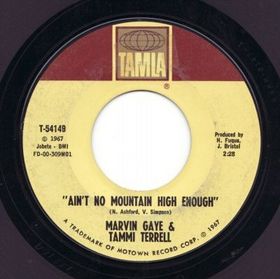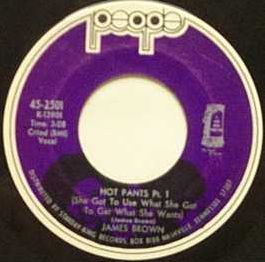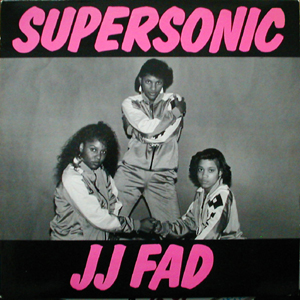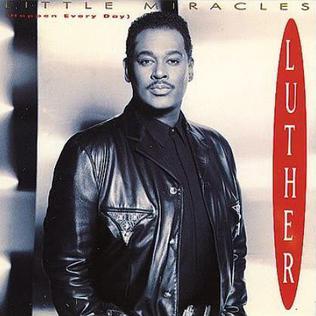Related Research Articles

"I Can't Get Next to You" is a 1969 No. 1 single recorded by the Temptations and written by Norman Whitfield and Barrett Strong for the Gordy (Motown) label. The song was a No. 1 single on the Billboard Top Pop Singles chart for two weeks in 1969, from October 18 to October 25, replacing "Sugar, Sugar" by the Archies and replaced by "Suspicious Minds" by Elvis Presley. The single was also a No. 1 hit on the Billboard Top R&B Singles for five weeks, from October 4 to November 1, replacing "Oh, What a Night" by the Dells, and replaced by another Motown song, "Baby I'm For Real" by the Originals.

"Ain't No Mountain High Enough" is a song written by Nickolas Ashford & Valerie Simpson in 1966 for the Tamla label, a division of Motown. The composition was first successful as a 1967 hit single recorded by Marvin Gaye and Tammi Terrell, and became a hit again in 1970 when recorded by former Supremes frontwoman Diana Ross. The song became Ross's first solo number-one hit on the Billboard Hot 100 chart and was nominated for the Grammy Award for Best Female Pop Vocal Performance.
Jocelyn Lorette Brown, sometimes credited as Jocelyn Shaw, is an American R&B and dance singer. Although she has only one Billboard Hot 100 chart entry solely in her name, she has an extensive background in the music industry and is well known in the world of dance music. Brown sang on 23 hit singles from the Official UK Singles Chart, 8 of which have reached the top 20.

"Until You Come Back to Me (That's What I'm Gonna Do)" is a song written by Morris Broadnax, Clarence Paul, and Stevie Wonder. The song was originally recorded by Stevie Wonder in 1967, but his version was not released as a single and did not appear on an album until 1977's anthology Looking Back. The best-known version of this song is the 1973 release by Aretha Franklin, who had a million-selling top 10 hit on Billboard charts. The song reached No. 1 on the R&B chart and No. 3 on the Hot 100 chart in 1974. It became an RIAA Gold record.

"Hot Pants (She Got to Use What She Got to Get What She Wants)" is a funk song by James Brown. Brown recorded the song in 1971 and released it that year as a three-part single on his People Records label, which was then distributed by his primary label King. It was a number-one R&B hit and reached number fifteen on the Billboard Hot 100 pop chart in the U.S. along with reaching number ten on the Cashbox magazine charts. "Hot Pants" was Brown's final release under King's purview before he (and the People label) moved to Polydor Records. The song's lyrics are an ode to the captivating power of the title garment, which members of the band first saw on their 1970 European tour.
"The Bells" is a 1970 single recorded by The Originals for Motown's Soul label, produced by Marvin Gaye and co-written by Gaye, his wife Anna Gordy Gaye, Iris Gordy, and Elgie Stover.

"Wake Up Everybody" is an R&B song written by John Whitehead, Gene McFadden and Victor Carstarphen.

"I'll Be Good to You" is a 1976 hit song by R&B duo the Brothers Johnson. George Johnson, one of the two Johnson brothers in the band, wrote the song after deciding to commit to a relationship with one woman, instead of dating several at a time. While George was recording a demo for the song, family friend Senora Sam came by and added some lyrics. Brothers Johnson producer and mentor Quincy Jones heard the song, liked it, and convinced George to sing lead on the finished track. Released from their debut album, Look Out for #1, it was a top-ten hit on the Billboard Hot Singles Charts, peaking at number three, and a number one song on the Billboard R&B Charts during the summer of 1976. The single was later certified gold by the RIAA.

"Do It ('Til You're Satisfied)" is a popular song by funk group B. T. Express, written by songwriter Billy Nichols.
"In the Rain" is a 1972 soul single by American vocal group The Dramatics, from their first album, Whatcha See Is Whatcha Get. It was written by Tony Hester and released in February 1972. The track is notable for its use of sounds of rain and thunder, first heard before the song's introduction, then throughout the instrumental and chorus sections.
"634-5789 " is a soul song written by Eddie Floyd and Steve Cropper. It was first recorded by Wilson Pickett on December 20, 1965 and included on his 1966 Atlantic Records album The Exciting Wilson Pickett with backing vocals by Patti LaBelle and the Blue Belles. The single reached number 1 on the Billboard Hot Rhythm & Blues Singles chart and number 13 on the Hot 100 singles chart.
"Call Me" is a song written and recorded by American singer Aretha Franklin. The song was co-produced by Jerry Wexler, Tom Dowd and Arif Mardin.

"And the Beat Goes On" is a 1979 single by the American music group the Whispers. The song was their first of two number-one singles on the Soul chart, and their first Top 20 hit on the Billboard Hot 100, peaking at number 19. "And the Beat Goes On" was the group's only number-one song on the dance chart. It was also their first and biggest hit in the United Kingdom, peaking at number 2 on the UK Singles Chart. The song also peaked at number 27 on the Canadian RPM chart.

"Funkin' for Jamaica (N.Y.)" is a song by jazz trumpeter Tom Browne. The single—a memoir of the Jamaica neighborhood in the New York City borough of Queens where Browne was born and raised—is from his second solo album, Love Approach. Browne got the idea for the song while he was at his parents' home. The vocals for the single were performed by Toni Smith, who also helped compose the song. The song hit number one on the US Billboard R&B chart for a month. "Funkin' for Jamaica" peaked at number nine on the dance chart and made the top 10 on the UK Singles Chart, but it never charted on the Billboard Hot 100.

"Hi-Jack" is a 1974 r&b and funk disco based song written by Spanish musician Fernando Arbex and originally recorded by his group Barrabás for their album ¡Soltad a Barrabás!. While their version of the song was a huge success in their native Spain, going all the way to Number one over there, the song flopped in America, stalling at just number No. 104 on the Bubbling Under the Billboard Hot 100 Charts in July 1975. It was later a hit single for jazz flautist Herbie Mann.
"I'm Not Gonna Let You" is a single by Colonel Abrams, released on February 7, 1986 from his self-titled debut album, Colonel Abrams (1985). It was his third number one on the U.S. dance chart and second top 20 hit on the U.S. R&B singles chart. In the UK, "I'm Not Gonna Let You" reached number 24 on the UK Singles Chart.

"She's a Bad Mama Jama " is a single by Carl Carlton. The song was written by Leon Haywood and became a major R&B hit, earning Carlton a Grammy Award nomination for Best R&B Vocal Performance, Male in 1982. Carlton's subsequent album, Carl Carlton, went gold in 1981. "She's a Bad Mama Jama" has since become a staple of compilation albums and soundtracks.

"Supersonic" is a song by J.J. Fad from their debut album of the same name.

"Little Miracles (Happen Every Day)" is a song by American recording artist Luther Vandross. The single supports his 1993 platinum album, Never Let Me Go. The song became a top ten hit on Billboard's Hot R&B Singles and reached top 30 on the UK Singles Chart. It also became the most successful single from the album on the US Billboard Hot 100, peaking at number sixty-two. It was nominated for best R&B songwriting at the 36th Grammy Awards in March 1994.

"Just a Touch of Love" is a song written by Robert Clivillés and performed by American musical group C+C Music Factory. Also known as "Just a Touch of Love (Everyday)", it was released in August 1991 as the duo's fourth single from their debut album, Gonna Make You Sweat (1990). It became their fourth number one on the US Billboard Hot Dance Club Play chart. On other US charts, the song went to #50 on the Billboard Hot 100 and #83 on the Billboard soul singles chart.
References
- ↑ Whitburn, Joel (2004). Hot Dance/Disco: 1974-2003. Record Research. p. 45.
- ↑ Whitburn, Joel (2004). Top R&B/Hip-Hop Singles: 1942-2004. Record Research. p. 85.
- ↑ "Jocelyn Brown - Samples, Covers and Remixes". WhoSampled .